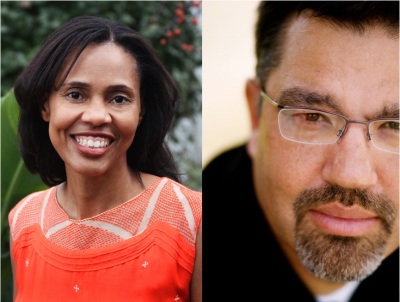The Local Church is Primarily Responsible for Segregation Within Congregations, Says Multi-Ethnic Network Leader

Where do Christians meet the people they choose to hang out with outside of church? Where did you meet the friends you will be watching the Super Bowl with? What about the group you regularly have over for dinner on Friday nights?
For most Christians, the answer is more than likely church, according to Mark DeYmaz, the founding pastor of the multi-ethnic Mosaic Church of Central Arkansas and founder of Mosaix Global Network, a ministry resource group. DeYmaz suggests that this tendency means that there are good odds that you will be hanging out with individuals of the same race as yours.
"Ninety-two and half percent of churches are segregated along racial lines [which means] the predominant friendships people have is with people who are like them," DeYmaz told The Christian Post recently.
Why is that troubling for DeYmaz?
"The problem is that when we don't have real relationships cross-culturally, we're not then in tune with the varying problems [and] concerns that affect different cultures…And if we're not in touch with people personally or get to know their issues, their problems or their concerns, we're not heavily motivated to invest time, our talent, or our efforts, in bringing change to those systemic issues and therefore the system is perpetuated in society," said DeYmaz, who added that the foundation of his arguments stemmed from his book, Divided by Faith: Evangelical Religion and the Problem of Race in America.
DeYmaz says that without congregations working to intentionally integrate, it means that the "local church is the primary perpetrator of the system."
To challenge this predicament, DeYmaz and Oneya Fennell Okuwobi recently developed The Multi-ethnic Christian Life Primer, a devotion and small group workbook that aims to "teach diverse believers how to walk, work and worship God together as one in the local church for the sake of the Gospel."
Okuwobi, the Director at Transcend Culture, an organization which resources to Multi-ethnic churches, began developing multiethnic curriculum for her church a decade ago after her pastor decided he wanted to focus on helping his "98 percent white, commuter church" become more multi-ethnic.
"We took our entire church through it and let me just tell you it was life-changing for many of our members. A lot of people who probably would not have stayed through all the changes that happened really did hang in with us because they were able to relate life for life and understand the stories of other people," Okuwobi told CP.
She collaborated with DeYmaz last year to do their second revision of the material. In its current online form, (they hope to turn to create a print version as well,) the study lasts for eight weeks and is meant as a tool where Christians can have conversations among each other about personal and societal racial and economic disparities.
DeYmaz said the primer was unique in that it did not only target Christian leaders or "raise awareness." His role in it was to "strengthen it with theological underpinnings of the movement and the church," or add verses and verses of Scriptural support for the book's message.
For the study to have its full effect, Okuwobi said she believed it was necessary to have "diverse folks in the room."
"What happens is if people have the information in front of them but not the person who lived the information in front of them, there can be a tendency to look at something and say 'Maybe that's not right' or 'I'm not really sure how they studied that or how they're thinking about that,'" said Okuwobi.
"But the combination of 'I'm going to be confronted on something tough' and "There is someone whom I am building relationship with in the room who can speak to it more from their personal experience,' is really where the true experience of it comes in."
When asked to share an anecdote that illustrated of how multiethnic teaching can affect members of his congregation, DeYmaz told a story of a Saudi Arabian Muslim lawyer who "came to America with the express vision of leading as many people to Islam as he could."
Despite his faith, the man resolved that he would visit a Christian church in the area to learn more about what religion looked in the U.S. Through connections they had at a local university, DeYmaz and church leaders reached to the man, inviting him to study English with them and learn more about the Bible though "not in a proselytizing way."
"To make a long story short, he had a miraculous conversation at our First Communion service. He saw a bright light shine on him, recognized it to be Jesus and he came to Christ," DeYmaz told CP.
Also attending DeYmaz's church at the same time as the Saudi Arabian lawyer, was a white woman who had been born and raised in a "very racist" region of Arkansas.
The school principal began attending DeYmaz's church after she "reached a point of saturation in the white community looking back at her racist past. She made an intentional point to come to our church plant and pursue unity through diversity."
The two are now married.
"His life was changed....through the credibility of the Gospel as presented in a multiethnic environment where the Prince of Peace, Jesus Christ, is in full display beyond rhetoric, beyond intellect, where the gospel is seen in the love that God has for all people," said DeYmaz.
"Her life was changed by willing herself into this type of study if you will, into this immersion in a diverse culture, in a diverse church, opening herself to the will of God which ultimately led to her interracial marriage," he added.





























